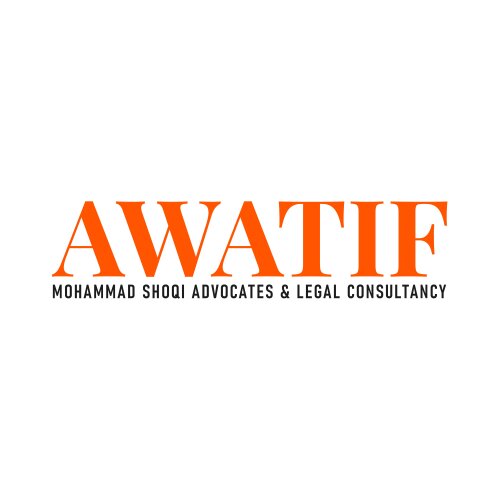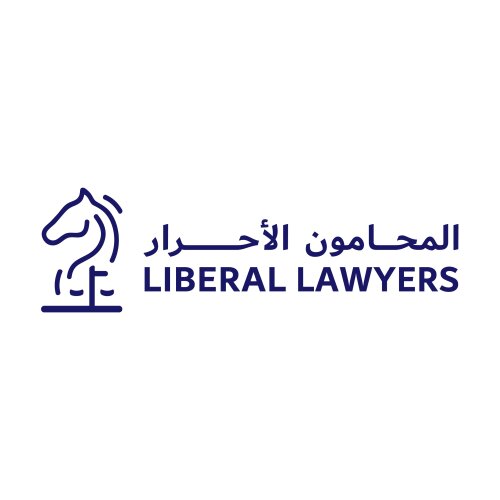Best Nonprofit & Charitable Organizations Lawyers in Abu Dhabi
Share your needs with us, get contacted by law firms.
Free. Takes 2 min.
List of the best lawyers in Abu Dhabi, United Arab Emirates

Saif Al Shamsi Advocates & Legal Consultants
30 minutes Free Consultation
The Black Robe For Legal Consultancy & Debit Collection
1 hour Free ConsultationAbout Nonprofit & Charitable Organizations Law in Abu Dhabi, United Arab Emirates
Nonprofit and charitable organizations in Abu Dhabi play a foundational role in cultivating a vibrant civil society, promoting community welfare, and advancing charitable causes. The legal framework governing these organizations is designed to ensure transparency, accountability, and the responsible use of resources. The establishment and operation of nonprofit entities require strict adherence to local regulations set forth by the relevant governmental authorities, such as the UAE Ministry of Community Development (MOCD).
Why You May Need a Lawyer
There are several situations where legal guidance is crucial for those involved with nonprofit and charitable organizations:
- Establishing a new organization: Navigating the registration process and ensuring compliance with local laws can be complex.
- Compliance issues: Nonprofits must adhere to specific reporting and operational requirements.
- Employment laws: Understanding the labor laws applicable to hiring staff or volunteers.
- Contracts and agreements: Drafting, reviewing, or negotiating contracts with partners or donors.
- Fundraising regulations: Ensuring that fundraising activities comply with legal standards.
- Taxation: Clarifying tax obligations, as some activities may not be exempt under nonprofit status.
Local Laws Overview
The legal landscape for nonprofit and charitable organizations in Abu Dhabi is influenced by a variety of laws and regulations:
- The UAE Ministry of Community Development oversees the registration and supervision of nonprofit organizations.
- Nonprofits must have a clear purpose aligned with charitable objectives as approved by the authorities.
- Organizations are required to submit annual reports detailing their activities and financial transactions.
- Fundraising must be pre-approved, and strict rules govern the solicitation and use of donations.
- Activities inconsistent with public order and morals are prohibited.
- Nonprofits are not permitted to engage in commercial activities unless they are directly related to their primary purpose and have specific approval.
Frequently Asked Questions
What is the process to establish a nonprofit organization in Abu Dhabi?
The process involves obtaining approval from the Ministry of Community Development, submitting detailed documentation on the purpose, structure, and funding of the organization, and registering with the appropriate local authorities.
Can a foreign entity establish a nonprofit in Abu Dhabi?
Yes, foreign entities can establish a nonprofit in Abu Dhabi, but they must comply with the same stringent requirements and procedures as local entities.
Are there any tax exemptions for nonprofit organizations in the UAE?
While nonprofits generally benefit from tax exemptions, they must ensure that their activities align strictly with their charitable purpose to maintain this status.
What are the restrictions on fundraising activities?
Fundraising activities require prior approval from the relevant authorities, and funds raised must be used strictly for the purposes declared during the approval process.
How can a nonprofit ensure compliance with labor laws?
Nonprofits must adhere to the UAE Labor Law regarding employment contracts, working hours, and conditions, even for volunteers, depending on their role.
What are the reporting requirements for nonprofit organizations?
Nonprofits must submit annual reports detailing governance, activities, and financial statements to maintain transparency and accountability.
Can a nonprofit organization own property in Abu Dhabi?
Subject to approval, nonprofits may own property if it is essential for their operations. However, property dealings require careful legal navigation.
What happens if a nonprofit violates local laws?
Organizations may face penalties, revocation of their license, and potential closure if they violate local laws or regulations governing nonprofits.
How is the governance of a nonprofit organization structured?
Nonprofit governance must adhere to best practices, typically including a board of directors, clear roles and responsibilities, and a transparent decision-making process.
Can nonprofits engage in political activities?
Nonprofits in Abu Dhabi are restricted from engaging in political activities or promoting political campaigns to maintain their status and due to potential legal ramifications.
Additional Resources
For further assistance or guidance, consider reaching out to the following resources:
- The Ministry of Community Development (MOCD) for regulations and registration procedures.
- Local legal firms specializing in nonprofit law for tailored legal advice.
- Abu Dhabi Chamber of Commerce, which can offer advice and connections within the community.
- Professional associations for nonprofits, providing training and networking opportunities.
Next Steps
If you require legal assistance in managing or establishing a nonprofit organization in Abu Dhabi, the following steps can guide you:
- Identify your specific legal needs and the type of assistance you require.
- Research and contact legal professionals or firms experienced in nonprofit law within the UAE.
- Prepare all necessary documentation and questions before your consultation.
- Schedule a meeting to discuss your needs in detail and outline the scope of the legal services required.
- Follow up on any advice given and ensure ongoing compliance with local laws and regulations.
Lawzana helps you find the best lawyers and law firms in Abu Dhabi through a curated and pre-screened list of qualified legal professionals. Our platform offers rankings and detailed profiles of attorneys and law firms, allowing you to compare based on practice areas, including Nonprofit & Charitable Organizations, experience, and client feedback.
Each profile includes a description of the firm's areas of practice, client reviews, team members and partners, year of establishment, spoken languages, office locations, contact information, social media presence, and any published articles or resources. Most firms on our platform speak English and are experienced in both local and international legal matters.
Get a quote from top-rated law firms in Abu Dhabi, United Arab Emirates — quickly, securely, and without unnecessary hassle.
Disclaimer:
The information provided on this page is for general informational purposes only and does not constitute legal advice. While we strive to ensure the accuracy and relevance of the content, legal information may change over time, and interpretations of the law can vary. You should always consult with a qualified legal professional for advice specific to your situation.
We disclaim all liability for actions taken or not taken based on the content of this page. If you believe any information is incorrect or outdated, please contact us, and we will review and update it where appropriate.















